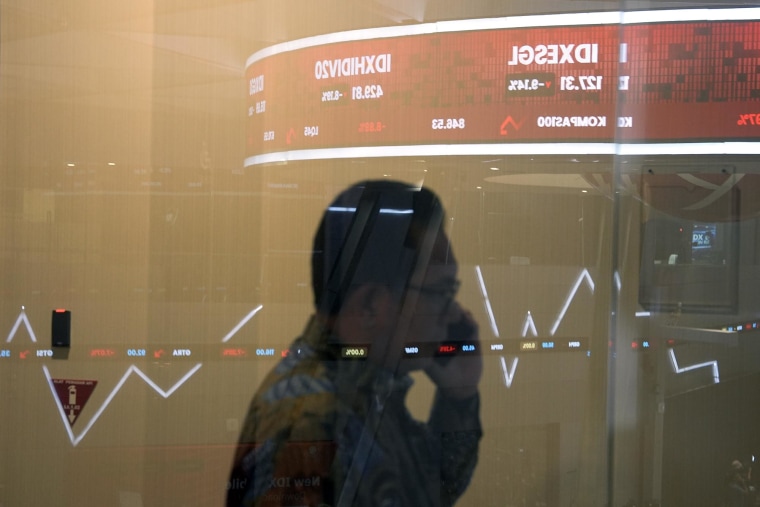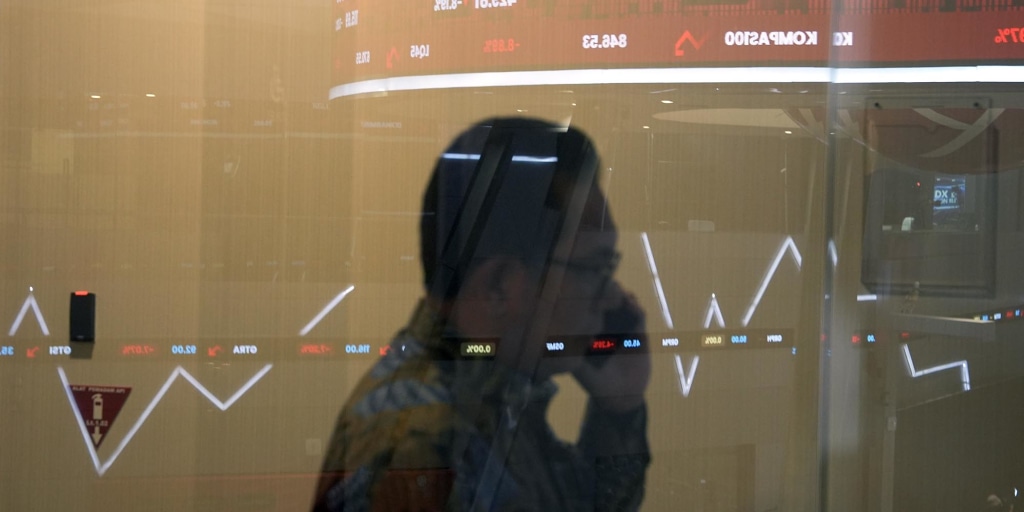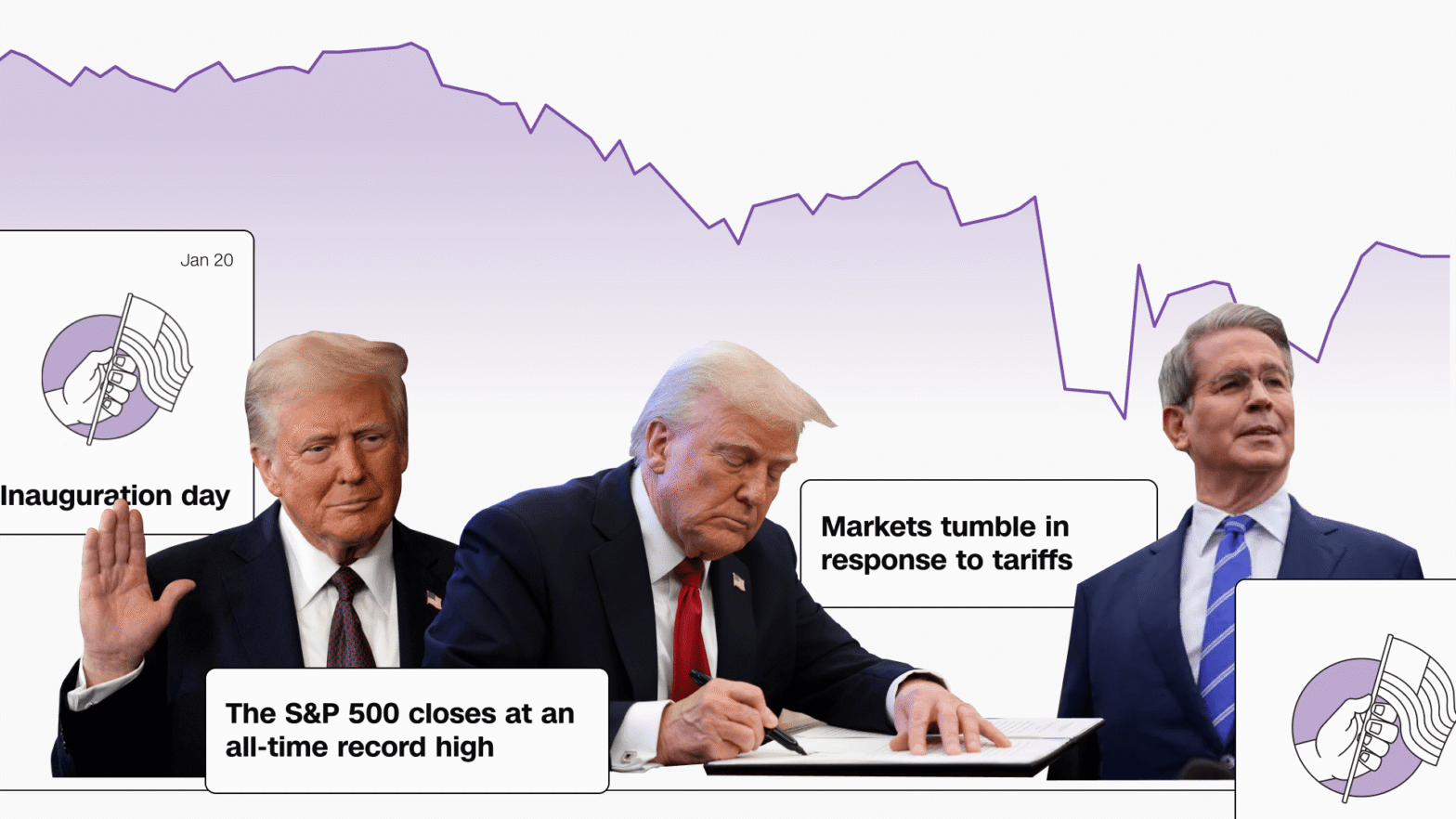U.S. stocks opened higher Tuesday, bringing momentary relief from a massive multi-day sell-off in response to President Donald Trump’s tariffs shock and even as trade tensions between the U.S. and China heated up.
The S&P 500 climbed more than 3.8%. The tech-heavy Nasdaq was about 4% higher. The Dow Jones Industrial Average gained more than 3.6% or nearly 1,400 points.
The reasons for the bounce are idiosyncratic. Some markets in Asia traded higher overnight — though this was partially in response to Chinese state funds stepping in to serve as a backstop to recent drawdowns. Japan’s Nikkei stock index also surged 6% after the White House indicated it was opening bilateral trade negotiations with the longtime U.S. ally.
European stocks climbed too, led by stronger outlooks in defense groups.
U.S. indexes were also getting a boost from a better outlook for health insurance stocks, which come as the Centers for Medicare & Medicaid Services on Monday announced a 5.06% increase in Medicare payments for next year — significantly higher than expected.
But some analysts suggested the bounce may simply be attributable to lower volumes of shares being traded, which tends to make overall market moves bigger than any actual change in earnings outlooks.
“Markets remain relatively thin and skittish,” said Steve Sosnick, chief strategist at Interactive Brokers financial group. “So each of these moves get amplified, that’s what we’re seeing today: a little bit of bargain hunting, which does make sense, but then we’re also seeing a little bit of a feeding frenzy that gets amplified.”
A brief rally Monday sparked by a false report on social media has also revealed that many traders were positioned to buy stocks on any news of a reversal in Trump’s policies, and some of that impact may be lingering, Sosnick said.
Around 9:10 a.m., Trump posted to social media that China “wants to make a deal, badly” and that he had held positive discussions with the acting president of South Korea about negotiating one with that nation as well.
Still, there was little indication that Trump was set to meaningfully relent on his effort to impose massive tariffs on U.S. imports, which the president has said are designed to bring manufacturing jobs back and close U.S trade deficits.
Indeed, signs of an escalation of a global trade war only increased as China’s ministry of commerce accused the U.S. of “blackmail” and vowed to “fight to the end” after Trump threatened a fresh 50% duty on the East Asian giant, raising the prospect that taxes on Chinese goods brought into the U.S. could reach 104%.
In an interview on CNBC early Tuesday, Treasury Secretary Scott Bessent said that China’s escalation was a “big mistake” and that it was “playing with a pair of twos.”
The president of the European Commission urged China to act responsibly in response to U.S. actions.
Though Besssent suggested “some good deals” could be hammered out with individual nations, even then “part of the calculus of that may be that some part of the tariffs stay on.”

Business sentiment continued to sour, with the National Federation of Independent Business reporting early Tuesday that its small business optimism index saw its biggest one-month decline since December 2020.
“The implementation of new policy priorities has heightened the level of uncertainty among small business owners over the past few months.” the federation’s chief economist, Bill Dunkelberg, said in a statement. “Small business owners have scaled back expectations on sales growth as they better understand how these rearrangements might impact them.”
In a note to clients Tuesday, Goldman Sachs analysts warned not to read too much into bounces like the one poised for Tuesday.
“Bear market rallies are quite common,” they wrote, citing past histories of wider market-drawdowns like the dot-com bubble and the 2008 Great Financial Crisis. “We see a pattern of rebounds before the market reaches a trough,” they said.
U.S. corporate earnings season kicks off this week, with Delta Airlines reporting Wednesday and large U.S. banks reporting Friday. Sosnick said the impact of tariffs will be top of mind — but that there may not be firm answers given the ongoing uncertainty and even disbelief about what Trump has proposed.
“People are confused, scared, and angry,” Sosnick said.
Rob Wile is a Pulitzer Prize-winning journalist covering breaking business stories for NBCNews.com.
Mithil Aggarwal
and
Yixuan Tan
contributed
.

















